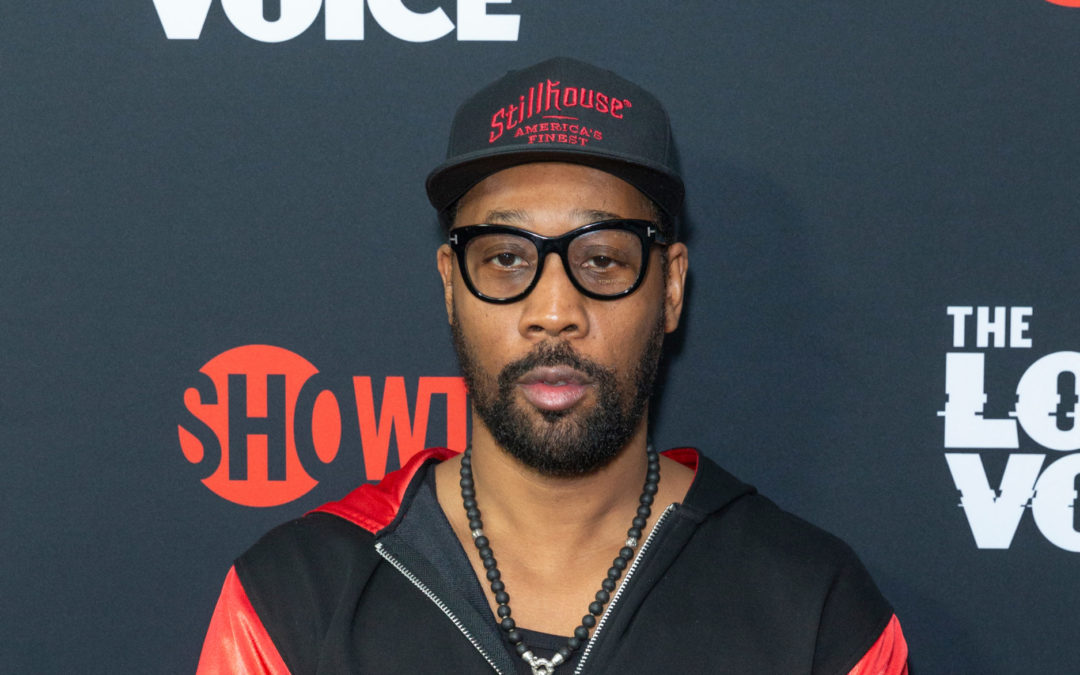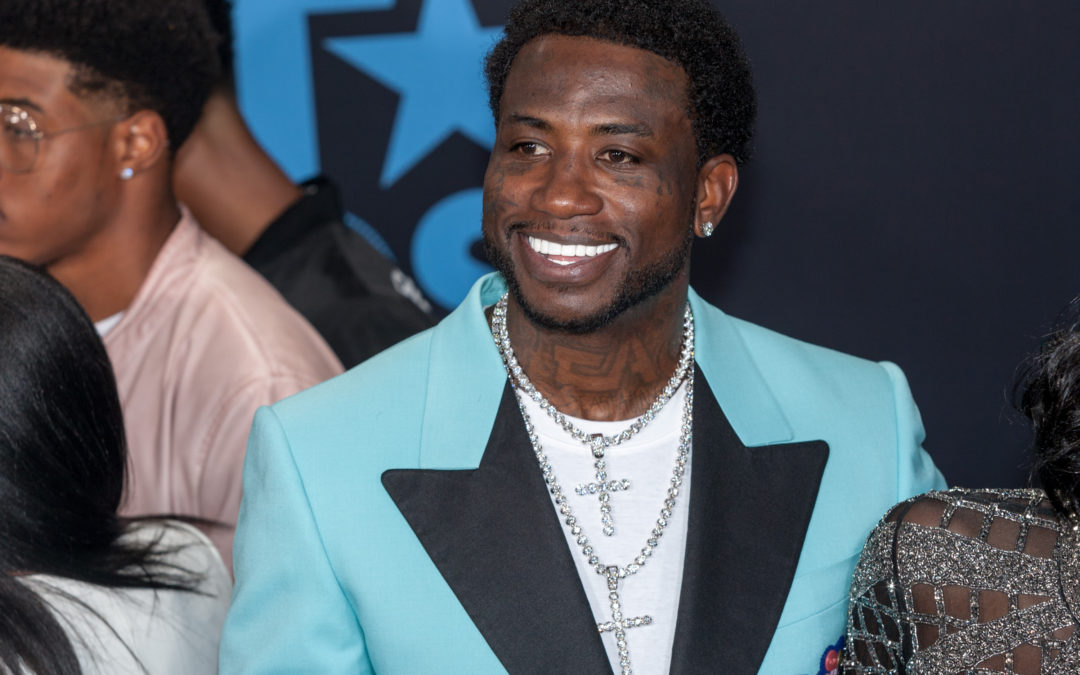
Michelle Obama releases her hip hop voting playlist
Michelle Obama has formulated an amazing playlist that will prep Americans to cast their votes in the 2020 Presidential Election. She partnered up with LL Cool J’s Rock The Bells to make

Michelle Obama has formulated an amazing playlist that will prep Americans to cast their votes in the 2020 Presidential Election. She partnered up with LL Cool J’s Rock The Bells to make

Master P will likely get honored by BET in a remarkable manner. At the 2020 BET Hip Hop Awards, he will be the recipient of “I Am Hip Hop” award. The function will take place on Oct. 27 at 9 PM ET.

Image credit: lev radin / Shutterstock.com
In the ever-shifting landscape of hip-hop, few figures stand as tall as RZA, the mastermind behind the legendary Wu-Tang Clan. Since the group’s inception in 1992, RZA has been at the forefront of musical innovation, pushing boundaries and redefining what it means to be an artist in the rap game. As the genre continues to evolve and new challenges emerge, RZA remains a beacon of creativity and wisdom, his words as potent and rhythmic as ever.
The hip-hop scene has undergone seismic shifts since RZA first burst onto the stage, transforming not just the music industry but the cultural fabric of New York City itself. Yet, in the face of these changes and the looming specter of artificial intelligence in music creation, RZA’s faith in the raw, unfiltered creativity of human artists remains unshaken. His journey from rap pioneer to classical composer is a testament to his versatility and unwavering commitment to artistic growth.
As we delve into the mind of this hip-hop luminary, we’ll explore his thoughts on the current state of the genre, his foray into classical music, and his perspective on the future of creativity in an increasingly digital world. RZA’s insights offer a unique glimpse into the heart of hip-hop, as seen through the eyes of one of its most influential architects.
RZA’s journey from the streets of Staten Island to the pinnacle of hip-hop royalty is a story of relentless creativity and innovation. As the chief architect of Wu-Tang Clan’s sound, he played a pivotal role in shaping the course of rap music in the 1990s and beyond.
At the age of 55, RZA has taken on a new challenge that showcases his musical versatility. Moving beyond the realm of rap production, he has embraced the role of orchestrator in the most literal sense. His latest project, “A Ballet Through Mud,” marks his debut in the world of classical music.
This ambitious album features 11 tracks that tell RZA’s life story not through rhymes, but through the rich, emotive tones of orchestral instruments. Working closely with the Colorado Symphony, RZA has crafted a sonic landscape that blends the raw energy of his hip-hop roots with the refined elegance of classical composition.
The creation of “A Ballet Through Mud” was no small feat. RZA describes it as one of the most time-consuming projects of his career, second only to the production of Wu-Tang Clan’s seminal album “Enter the Wu-Tang (36 Chambers).” The sheer scale of the undertaking, from composing for a 60-piece orchestra to navigating the intricacies of classical recording sessions, presented a new set of challenges for the veteran producer.
RZA’s approach to this album was driven purely by artistic vision, with no expectations for commercial success. This freedom allowed him to explore new musical territories and push his creative boundaries in ways he hadn’t since the early days of Wu-Tang.
RZA’s venture into classical music raises interesting questions about the relationship between different musical genres. By bridging the gap between hip-hop and classical composition, he demonstrates the universal language of music and the potential for cross-genre pollination.
This fusion of styles not only showcases RZA’s versatility as an artist but also challenges preconceptions about the limitations of hip-hop artists. It serves as a powerful reminder that creativity knows no bounds and that true artists can transcend the confines of any single genre.
As a veteran of the hip-hop scene, RZA offers valuable insights into the genre’s current state and its potential future directions. His perspective is shaped by decades of experience and a deep understanding of hip-hop’s roots and evolution.
One of the most significant developments in recent years, according to RZA, is the increasing prominence of women in hip-hop. He expresses enthusiasm for this trend, noting the diverse voices and perspectives that female artists bring to the genre.
However, RZA also offers a word of caution. Drawing from the lessons of his own generation, he hopes that these rising stars will avoid some of the pitfalls that male artists fell into, particularly the tendency to prioritize style over substance. He emphasizes the importance of maintaining a balance between artistic expression and meaningful content.
As a New York native and a key figure in the city’s hip-hop scene, RZA has a unique perspective on how the sound of New York rap has evolved over the years. He notes that while the city may have moved away from its original, distinctive sound, this evolution is a natural part of the genre’s growth.
RZA points out that as hip-hop has become a global phenomenon, influences from different regions and styles have blended together. This cross-pollination has led to a more diverse and eclectic sound, even in New York, the birthplace of hip-hop.
The advent of new technologies has dramatically changed the landscape of music production, and hip-hop is no exception. RZA reflects on how these changes have affected the creative process and the sound of contemporary hip-hop.
While acknowledging the benefits of technological advancements, RZA also emphasizes the importance of maintaining the human element in music creation. He believes that the spontaneity and unpredictability of human creativity are what give hip-hop its unique energy and appeal.
As artificial intelligence continues to make inroads into various creative fields, including music, RZA offers his perspective on this emerging technology and its potential impact on hip-hop.
Despite the rapid advancements in AI technology, RZA remains skeptical about its ability to truly replicate human creativity. He argues that the spontaneous nature of human thought and expression is something that AI, at least in its current form, cannot fully emulate.
RZA’s view is that while AI might be able to generate content based on existing patterns and data, it lacks the ability to produce truly original, groundbreaking ideas. He believes that the unpredictable, often chaotic process of human creativity is what gives birth to revolutionary artistic expressions.
Rather than viewing AI as a threat to human artists, RZA sees it as a potential tool that can be harnessed and transformed by creative individuals. He suggests that even if AI-generated content becomes more prevalent, innovative artists will find ways to use this technology to push the boundaries of their craft.
This perspective aligns with hip-hop’s long-standing tradition of sampling and recontextualizing existing material. Just as hip-hop artists have taken snippets of old records and transformed them into something new and exciting, RZA believes that future artists might do the same with AI-generated content.
At the core of RZA’s thoughts on AI in music is a firm belief in the irreplaceable value of human experience and emotion in artistic expression. He argues that the power of music lies not just in its technical execution, but in its ability to convey genuine human experiences and emotions.
This human element, according to RZA, is what allows music to connect with listeners on a deep, emotional level. It’s the raw, unfiltered expression of human creativity that he believes will always set human-made music apart from AI-generated content.
RZA emphasizes the importance of finding a balance between pushing the boundaries of hip-hop and preserving its core elements. He notes that while sonic innovation is thriving, with producers and artists experimenting with new sounds and styles, there’s a need to maintain the substance and messaging that has always been at the heart of hip-hop.
This balance, according to RZA, is crucial for ensuring that hip-hop remains a powerful form of expression and communication, rather than becoming solely focused on style over substance.
As we reflect on RZA’s journey from hip-hop pioneer to classical composer, it’s clear that his influence on the music world extends far beyond his work with Wu-Tang Clan. His willingness to push boundaries, explore new territories, and maintain a commitment to artistic integrity serves as an inspiration to both established and emerging artists.

Image credit: Jamie Lamor Thompson / Shutterstock.com
The hip-hop world is buzzing with shocking news as Gucci Mane, the Atlanta-based rap mogul, announces a dramatic overhaul of his 1017 Records label. In a move that’s sent shockwaves through the industry, the “Lemonade” hitmaker has decided to part ways with nearly all of his signed artists, retaining only two while setting his sights on fresh talent. This seismic shift in Gucci’s empire has left fans and industry insiders alike wondering: what’s next for 1017 Records, and how will this reshape the landscape of contemporary rap?
Let’s dive deep into the world of Gucci Mane, exploring the reasons behind this unexpected decision, its potential impact on the music industry, and what it means for the future of hip-hop. From the business acumen driving this choice to the personal struggles that may have influenced it, we’ll unpack every angle of this game-changing announcement.
In a world where social media reigns supreme, it’s fitting that Gucci Mane chose to drop this bombshell via a video post. On October 18th, the rap icon took to his platforms with an announcement that left his followers stunned. With his characteristic straightforwardness, Gucci revealed his intention to release almost every artist from his 1017 Records roster.
The video, raw and unfiltered, showcased Gucci’s business-minded approach. He spoke candidly about examining his profit and loss statements, a move that ultimately led to this drastic decision. “When I’m looking at my P&L, and me being a businessman, I’m thinking that I’m going to have to release almost all my artists,” he stated, his words carrying the weight of a difficult choice.
But amidst the shock, two names stood out: Pooh Shiesty and Foogiano. These artists, it seems, have managed to secure their spots in Gucci’s streamlined vision for 1017 Records. The mention of these two rappers amidst the announcement of widespread cuts has sparked intense speculation about their role in the label’s future.
Gucci’s words weren’t just about cuts, though. In a surprising twist, he also expressed his intention to seek out new talent. This dual approach of trimming the roster while simultaneously scouting for fresh faces paints a picture of a label in transition, poised for a new era under Gucci’s reinvigorated leadership.
The announcement video quickly went viral, sparking heated debates across social media platforms. Fans, fellow artists, and industry experts all weighed in, dissecting Gucci’s words and speculating about the future of 1017 Records. In the span of a few minutes, Gucci Mane had managed to set the hip-hop world ablaze with anticipation and uncertainty.
At the heart of Gucci Mane’s decision lies a cold, hard look at the numbers. The rap mogul didn’t mince words when he cited his profit and loss statements as a key factor in this sweeping change. This peek behind the curtain of the music industry reveals the often-overlooked business side of hip-hop, where artistic expression meets financial reality.
Running a record label is no small feat, and 1017 Records has faced its share of challenges. From marketing costs to studio time, music video production to tour support, the expenses can quickly add up. For each artist on the roster, there’s an investment of time, money, and resources. When these investments don’t yield the expected returns, tough decisions have to be made.
Gucci’s approach to this situation demonstrates his evolution as a businessman. Gone are the days when artistic potential alone could secure a spot on a label. In today’s competitive music landscape, commercial viability is just as crucial. By streamlining his roster, Gucci is positioning 1017 Records to be leaner and potentially more profitable.
This move also speaks to the changing dynamics of the music industry. In an era of streaming and social media, artists have more avenues than ever to reach their audience directly. This shift has forced labels to reconsider their role and value proposition. By focusing on a smaller roster, 1017 Records can potentially offer more personalized attention and resources to its remaining artists.
However, this business-driven decision isn’t without its risks. There’s the potential for backlash from fans of the dropped artists, as well as the challenge of rebuilding the label’s roster with new talent. Gucci’s gamble here is that the long-term financial health of 1017 Records will outweigh any short-term setbacks.
In the midst of this label-wide shakeup, two names emerged as the survivors: Pooh Shiesty and Foogiano. These artists, both relative newcomers to the rap scene, have managed to secure their positions at 1017 Records while their labelmates face an uncertain future. But who are these rappers, and what sets them apart?
Pooh Shiesty, born Lontrell Williams Jr., burst onto the scene in 2020 with his breakout single “Back in Blood” featuring Lil Durk. The Memphis native’s gritty lyrics and authentic street narratives quickly caught the attention of hip-hop fans and industry insiders alike. His debut mixtape, “Shiesty Season,” released under 1017 Records, solidified his position as one of rap’s rising stars.
Foogiano, hailing from Greensboro, Georgia, has been making waves with his raw, unfiltered approach to rap. His single “Molly (Baby Mama)” became a viral hit, showcasing his unique flow and storytelling abilities. Like Pooh Shiesty, Foogiano’s music resonates with listeners who appreciate authentic, street-oriented rap.
The retention of these two artists speaks volumes about Gucci Mane’s vision for 1017 Records. Both Pooh Shiesty and Foogiano represent a new generation of Southern rap, carrying forward the tradition that Gucci himself helped establish. Their ability to connect with younger audiences while maintaining the gritty authenticity that 1017 Records is known for likely played a significant role in Gucci’s decision to keep them on board.
However, it’s worth noting that both artists are currently facing legal troubles. Pooh Shiesty is serving a five-year sentence for a firearms conspiracy charge, while Foogiano is also behind bars on a firearms charge. Despite these setbacks, Gucci’s commitment to these artists underscores his belief in their potential and his willingness to stand by them through challenging times.
Even as Gucci Mane trims his label’s roster, he’s already got his sights set on the future. In the same breath that he announced the release of most of his artists, he also revealed his intention to seek out fresh talent. This dual approach of cutting ties while simultaneously scouting for new blood paints a picture of a label in transition, ready to evolve with the ever-changing landscape of hip-hop.
Gucci’s hunt for new artists isn’t just about filling the gaps left by those who’ve been let go. It’s about finding the next generation of rap superstars who can carry the 1017 Records banner into the future. The rap mogul has a keen eye for talent, having previously discovered and nurtured artists who’ve gone on to make significant impacts in the industry.
But what kind of talent is Gucci looking for? If his retention of Pooh Shiesty and Foogiano is any indication, he’s likely seeking artists who embody the raw, authentic spirit of Southern rap while also bringing something fresh to the table. In today’s hip-hop landscape, that could mean artists who seamlessly blend traditional rap elements with new sounds, or those who have a strong social media presence and the ability to connect directly with fans.
The search for new talent also presents an opportunity for 1017 Records to diversify its roster. While the label has primarily been known for its male rappers, Gucci could use this moment to bring in female artists or even expand into other subgenres of hip-hop.
For aspiring rappers, this search represents a golden opportunity. The chance to be mentored by Gucci Mane and to be part of the 1017 Records legacy is sure to attract a flood of submissions from hungry young artists eager to make their mark on the rap world.
While Gucci Mane’s decision to streamline 1017 Records may be a strategic move for the label, it leaves many artists in a state of uncertainty. The rappers who’ve been released from their contracts now face the challenge of navigating their careers without the backing of a major label.
For some, this sudden change could be seen as a setback. The resources, connections, and promotional power that come with being signed to a label like 1017 Records are significant. Artists who were relying on these benefits to further their careers may now need to reassess their strategies and find new ways to reach their audience.
However, for others, this could be an opportunity for growth and independence. In today’s music landscape, artists have more tools than ever to promote their work and connect with fans directly. Streaming platforms, social media, and DIY marketing strategies have made it possible for independent artists to build successful careers without major label support.
The released artists also have the advantage of their association with 1017 Records. Having been part of Gucci Mane’s label, even for a short time, can serve as a valuable credential in the industry. These artists can leverage this experience as they seek new opportunities or partnerships.
It’s also worth considering the potential for these artists to form new alliances or even start their own labels. The hip-hop world has seen numerous examples of artists turning label setbacks into entrepreneurial opportunities, and this situation could spark similar initiatives.
Ultimately, the impact of this decision on the released artists will largely depend on how they choose to respond to this change. While it undoubtedly presents challenges, it also opens up new possibilities for these artists to chart their own paths in the music industry.
To understand the full impact of Gucci Mane’s decision, it’s crucial to look back at the legacy of 1017 Records. Founded in 2007, the label has been a cornerstone of Southern rap for over a decade, playing a significant role in shaping the sound and culture of contemporary hip-hop.
From its inception, 1017 Records has been synonymous with Gucci Mane’s raw, unfiltered approach to rap. The label has served as a launching pad for numerous artists who’ve gone on to make significant impacts in the industry. Names like Waka Flocka Flame, Young Thug, and Migos all have ties to 1017 Records, underscoring the label’s knack for identifying and nurturing talent.
The label’s influence extends beyond just the artists it’s signed. 1017 Records has been instrumental in popularizing the trap music subgenre, helping to bring the gritty, bass-heavy sound from the streets of Atlanta to mainstream audiences worldwide. This sonic signature has become a defining characteristic of modern hip-hop, influencing countless artists and producers.
1017 Records has also been known for its distinctive aesthetic, from its iconic ice cream cone logo to the flashy, street-oriented music videos that have become a hallmark of the label’s visual style. This branding has played a crucial role in establishing 1017 Records as more than just a label, but a cultural force in its own right.
However, the label’s journey hasn’t been without its challenges. Legal troubles, both for Gucci Mane himself and for several of the label’s artists, have at times overshadowed its musical achievements. The recent losses of artists like Enchanting and Big Scarr to drug overdoses have also cast a somber shadow over the label’s legacy.
As 1017 Records enters this new phase, it carries with it a rich history that has left an indelible mark on hip-hop culture. The question now is how this legacy will evolve as the label moves forward with its streamlined roster and renewed focus on fresh talent.
Gucci Mane’s decision to reshape 1017 Records is not just a business move – it’s also a reflection of his personal growth and evolution as an artist and entrepreneur. To fully understand this pivotal moment, it’s worth looking at Gucci’s own journey in the music industry.
From his early days as a rising star in Atlanta’s rap scene to his current status as a hip-hop icon, Gucci Mane has weathered numerous storms

Photo by Aditya Chinchure on Unsplash
After a hiatus spanning three years, the inimitable Chief Keef has resurfaced with his latest musical offering, “Almighty So 2.” This album marks a triumphant return for the 28-year-old rapper, who has etched an indelible mark on the hip-hop landscape with his groundbreaking artistry and unparalleled influence.
To truly comprehend the magnitude of Chief Keef’s impact, one must delve into the origins of his meteoric rise. It was in 2012 when the Chicago native first captured the attention of the music world with his chart-topping hits “I Don’t Like” and “Love Sosa.” These seminal tracks ignited a seismic shift in the rap game, ushering in a new era of raw, uncompromising lyricism and gritty, street-inspired beats.
Born Keith Cozart, Chief Keef’s ascent to stardom was a testament to his unwavering authenticity and his ability to give voice to the harsh realities of inner-city life. His music resonated deeply with a generation of youth who found solace and validation in his unapologetic depictions of the struggles and triumphs of the urban experience.
Chief Keef’s response was as candid as it was humbling. “Everywhere!” he exclaimed, highlighting the ubiquity of his influence. “If I had 500 M’s every time [I heard that], I’d be Jeff Bezos. The fuck? I think I’d probably be bigger. I would be more rich!”
While the recognition of his impact is undoubtedly flattering, Chief Keef’s tone betrayed a weariness with the constant praise. “I be hearing that a lot, though, man. I be tired of hearing that shit. I be like, ‘We know.’ Me, you, and God know that. It’s okay. Let people do what they do, man.”
Despite his nonchalant attitude towards the accolades, Chief Keef’s humility shines through as he acknowledges the influential forces that shaped his own artistic journey.
“I was a big fan of Gucci [Mane] and Lil Wayne. Still am,” he confessed, paying homage to the rap titans who paved the way for his success. “So if I got people who love me like that, shit, man.”
Chief Keef’s admiration for these trailblazers extends beyond mere fandom. He revealed that he still draws inspiration from their iconic styles, seamlessly weaving their influences into his own unique sound. “And we still even sometimes take our raps [from that],” he shared. “The old Lil Wayne, I still even rap like that. If you listen to ‘Jesus,’ I got his flow—some Lil Wayne, the old Wayne, inspiration. So I guess I inspire, the way they inspire me.”
In a poignant moment during the interview, Setaro broached the topic of Chief Keef’s upcoming performance at the Lyrical Lemonade Summer Smash, which will mark his first live show in Chicago in over a decade.
Section 5: The Enduring Legacy of a Hip-Hop Visionary
As Chief Keef prepares to take the stage in his hometown, his influence continues to reverberate throughout the hip-hop community and beyond.
From his humble beginnings on the streets of Chicago to his meteoric rise to stardom, Chief Keef’s journey has been a testament to the power of authenticity and unwavering artistic vision. His music has resonated with generations of listeners, providing a raw and unfiltered lens into the harsh realities of urban life.
More than just a musician, Chief Keef has become a cultural phenomenon, his influence permeating fashion, language, and popular culture. His impact is a testament to the enduring power of art to transcend boundaries and unite people from all walks of life.
As Chief Keef continues to evolve and push the boundaries of his artistry, his influence remains a constant force in the ever-changing landscape of hip-hop.
Like any true artist, Chief Keef’s journey has been marked by growth and transformation. His music has evolved from the raw, unfiltered energy of his early days to a more refined and nuanced sound, reflecting the maturity and depth of his artistic vision.
Yet, despite his evolution, Chief Keef has remained steadfastly committed to his roots. His music continues to resonate with the same authenticity and raw emotion that first captivated audiences over a decade ago.
As Chief Keef’s career continues to unfold, his impact on the hip-hop genre is undeniable. His influence has transcended generations, inspiring countless artists and shaping the very fabric of the music we love. Whether you’re a die-hard fan or a casual listener, Chief Keef’s legacy is one that will resonate for years to come.
To truly appreciate the depth of Chief Keef’s influence, it’s essential to delve into the intricacies of his artistic journey, from his humble beginnings to his current status as a hip-hop icon.
Born and raised in the heart of Chicago’s Southside, Chief Keef’s formative years were shaped by the harsh realities of inner-city life. His music became a powerful outlet, allowing him to give voice to the struggles and triumphs of his community.
As Chief Keef continues to evolve and push the boundaries of his artistry, his legacy and influence on future generations of artists and listeners cannot be overstated.
Through his willingness to take risks and push boundaries, Chief Keef has inspired countless artists to embrace their own creative visions, regardless of the challenges or criticism they may face.
Whether through his music, his fashion, or his cultural impact, Chief Keef has left an indelible mark on the world of hip-hop and beyond. His influence will continue to reverberate for generations to come, inspiring and shaping the art of tomorrow.
As Chief Keef embarks on this new chapter of his artistic journey, fans and critics alike are eagerly anticipating what’s next for this hip-hop visionary.
Like any true artist, Chief Keef‘s future will undoubtedly be marked by growth and evolution. His willingness to embrace change and push the boundaries of his craft will continue to shape his artistic trajectory.
Ultimately, Chief Keef’s future will be a testament to his enduring legacy as a trailblazer and visionary. Through his unwavering commitment to his art and his truth, he will continue to cement his place in the annals of hip-hop history, inspiring generations to come.
RECENT COMMENTS